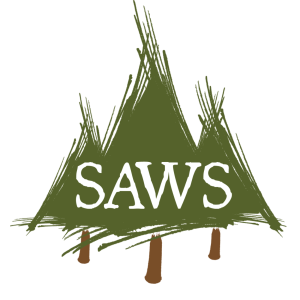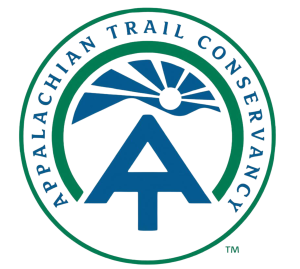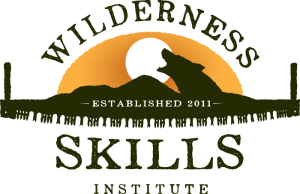Founded in 2011, the Wilderness Skills Institute (WSI) brings together wilderness stewards from federal agencies, partners, and volunteers across the southeast to learn shoulder-to-shoulder the skills and knowledge necessary to care for America’s enduring resource, wilderness. The Southern Appalachian Wilderness Skills Institute is a partnership between the U.S. Forest Service, the Appalachian Trail Conservancy (ATC), and Southern Appalachian Wilderness Stewards (SAWS). WSI currently features two weeks of training hosted each year on either side of Memorial Day weekend in Transylvania County, NC on the Pisgah National Forest and at the Cradle of Forestry.
Southern Appalachian Wilderness Skills Institute WSI 2025
The 2025 Southern Appalachian Wilderness Skills Institute will be May 19-23 and May 27-30. It will start at 1pm ET on Monday (or Tuesday for week 2) and conclude at 12PM ET on Friday. It is free for participants to attend. All participants are expected to sign up for an entire week but do not need to attend both weeks.
Registration Closed – Waitlist Only
Cost: There is no cost to attend WSI.
Week One: May 19-23, 2025
- Crosscut A/B
- First Aid/CPR/Stop the Bleed
- Trail Maintenance: Structures/Advanced
- Wilderness Management Fundamentals
- Mechanical Advantage and Rigging
Week Two: May 27-30, 2025
- Virtual WSI Wildcard
- Introduction to Stewardship
- Southern Appalachian Ecosystems
- Wilderness and Emergency Management
Crosscut A/B – Developing Thinking Sawyers
Purpose of Course
The USDA Forest Service “National Sawyer Training: Developing Thinking Sawyers” course outlines and describes the operational procedures for the use of saws by Forest Service employees, volunteers, and cooperators. These operational procedures are considered best practices that are designed to protect sawyers from accidental injury or death during saw operations.
- All sawyers must be trained, evaluated, and certified through an approved training program, in accordance with FSM 2358.
- To engage in sawing activities, sawyers must acquire and maintain a USDA Forest Service national sawyer certification card and first aid/cardiopulmonary resuscitation (CPR) certification.
- The national sawyer certification card has a 3-year expiration date and can be subject to review at any time before it expires.
Course Goal
The “Developing Thinking Sawyers” course is designed to provide employees, volunteers, and cooperators who are basic to intermediate chain saw and crosscut saw users with the technical knowledge to use these tools safely and effectively.
At the completion of training, a qualified sawyer evaluator will conduct a field evaluation to determine whether a student demonstrates:
- Safe saw handling skills
- Basic knowledge of course content
- Recall the guiding documents associated with the Forest Service National Saw Program and its policies.
- Recognize the levels of sawyer certification.
- List the three key safety concepts.
- Identify the required personal protective equipment (PPE) and its proper fit.
- Identify and discuss how human factors affect sawyer operations.
- Identify and discuss components of the objective, hazards, leans/binds, escape plan, cutplan (OHLEC) size-up process.
- Discuss operational complexity and its relationship to a sawyer’s knowledge and skill.
- Explain the importance of saw team communication.
- The field evaluation will identify the level of certification at which each student is authorized to perform saw work based on the student’s ability to apply learned knowledge and skill in front of an approved sawyer evaluator.
Trail Work: Light Rigging for Trail Structures
This course focuses on building trail structures with the use of a Maasdam rope puller, a lightweight alternative to the griphoist. Participants will learn about and practice techniques for building trail structures, tools and gear, safe working limits, anchors, safety, as well as covering some trail maintenance topics.
Wilderness Management Fundamentals
Wilderness Management Fundamentals is a cornerstone course at WSI, offered annually. This course covers the essential aspects of Wilderness management, including its history, core concepts, and the Wilderness Act of 1964. Participants will explore topics such as Wilderness Character, the Minimum Requirements Analysis, Wilderness History, Leave No Trace principles, Wilderness Stewardship Performance, and Wilderness Character Monitoring. The course also includes several field trips and interactive exercises. By the end of the course, all participants will have a solid foundation in Wilderness management.
Mechanical Advantage and Rigging
When elbow grease and brute force will only get you so far, sometimes you need to work smarter and not harder. This class is an introduction to devices and systems used for applying mechanical advantage to lift or move a load, be it a large boulder, log, or buckets of gravel down a zip line
This course is for anyone interested in the use of Griphoists and rigging systems for trail work, regardless of prior experience. Over the course of this workshop will cover rigging fundamentals, safe setup and operation of Griphoist ground and high line systems for situations involving pulling, lowering, lifting and moving heavy loads on and off of the ground.
The course will consist of the following components:
- Simple Machines and Mechanical Advantage: The use of simple machines to magnify force or distance in accomplishing work. (Hand moving).
- Cable Based Rigging Systems: Adapting industrial wire rope systems for outdoor settings. (Heavy rigging).
- Rope (textile) Based Systems: The use and standards for systems built around static and dynamic textile rope. (Light Rigging).
WSI Virtual Wildcard
This course is designed to reach WSI participants who may not be able to attend in person. There will be a variety of 90-minute virtual sessions related to Wilderness and the Appalachian Trail (AT) topics, including Wilderness Act & History, Wilderness Stewardship Performance (WSP) Overview, AT & Wilderness Management Intersection, Backcountry Sanitation and Privy Management, AT Volunteer Management, AT Visitor Use Management, Wilderness Character Monitoring Trend Analysis and Introduction to Wild & Scenic Rivers.
Introduction to Stewardship
Are you a new or aspiring volunteer looking to make a difference in the outdoors? Whether you’ve been volunteering for less than a year or are just getting started, this engaging course is designed to welcome you into the vibrant community of wild public land stewardship. Following the impact of Hurricane Helene, this program aims to inspire connection, confidence, and action among individuals ready to make an impact on our cherished trails and wilderness areas.
Through this interactive course, participants will:
- Gain an introduction to the U.S. Forest Service (USFS), Appalachian Trail Conservancy (ATC), and Southern Appalachian Wilderness Stewards (SAWS)—learning how these organizations collaborate to protect and maintain public lands.
- Explore the wide spectrum of volunteer opportunities, from trail maintenance and wilderness data collection to trash pick-up, invasive species removal (NNIS), and native plant restoration.
- Develop essential skills like trail stewardship eyes and Leave No Trace (LNT) practices.
- Learn a deeper understanding and the “why” behind stewardship decisions.
By the end of this course, participants will feel confident and empowered to contribute to the stewardship of trails and wilderness areas, equipped with knowledge, skills, and community connections to make a lasting impact.
Southern Appalachian Ecosystems
Back by popular demand for its second year, the Southern Appalachian Ecosystems course offers participants an in-depth exploration of the plants and animals in Southern Appalachian ecosystems. Participants will gain knowledge about native and invasive species specific to the region. Additionally, the course includes sessions focused on the identification, management, and treatment of non-native invasive species (NNIS). Engaging topics will highlight unique and fascinating aspects of the Southern Appalachians.
Wilderness and Emergency Management
This new course will explore the intersection of Wilderness and Emergency Management. Topics will include natural disasters like hurricanes and flooding that have become increasingly more common in the Southern Region. We will also explore wildfire program connections, search and rescue operations, hazard tree policy and saw policy. We will discuss the Minimum Requirements Analysis in an emergency context, and we’ll also spend some time in the field looking at recovery efforts.
Food: On your own. Participants will handle all their own meals. Prepare to bring meals to the field.
Lodging: WSI offers free on-site camping for all participants and instructors. There are hotels in nearby towns for both courses. Emails will be sent after acceptance to the course with more information.
Contact: Email volunteer@wildernessstewards.org for specific questions or concerns.
SAWSI Application 2025
Champions of Wilderness: Our Esteemed Sponsors
We extend our heartfelt gratitude to our generous sponsors whose support has fueled the success of the Southern Appalachian’s Wilderness Skills Institute. Your commitment to empowering outdoor enthusiasts and fostering a deeper connection to wilderness and wild public lands is truly commendable. Thank you for being instrumental in making this transformative experience possible for all attendees.






